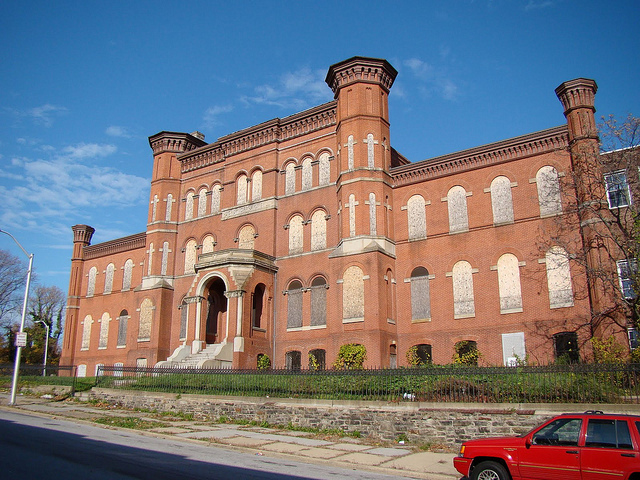The Coppin Heights Community Development Corporation recently completed a new Hebrew Orphan Asylum Adaptive Reuse Study with support from Baltimore Heritage, Preservation Maryland, and the National Trust for Historic Preservation. This report (available for download here) evaluates the restoration of this rare 19th century purpose-built orphanage and explores opportunities to return the building to use as a center for health care and healthy living. This study is a step forward in our ongoing effort to preserve the Hebrew Orphan Asylum.
In partnership with Coppin State University, the Coppin Heights CDC’s plan calls for creating a healthy foods market and a community health center in the building. Not only would this use provide an essential service to a West Baltimore community with limited access to fresh food and healthcare, it would also continue a rich tradition of social service at the Hebrew Orphan Asylum that began nearly 140 years ago.
Despite this good news, serious concerns remain as the distressed condition of the building–highlighted by the collapse this past February–urgently demands the immediate development of a financing plan to support the building’s stabilization and rehabilitation. Financing for projects similar to the Asylum often comes from a wide range of sources: tax credits, private commercial loans, and private donors just to name a few. To support this effort, Baltimore Heritage and the Coppin Heights CDC worked together to submit an application to the the state and federal historic rehabilitation tax credit programs. If the application is successful, the state and federal tax credits could provide up to an estimated $4,000,000 for rehabilitation– a tremendous investment in the future of the Hebrew Orphan Asylum and the neighborhoods of Greater Rosemont.
Please connect with the Friends of the Hebrew Orphan Asylum on Facebook to show your support for this landmark while following future developments for this great landmark.

